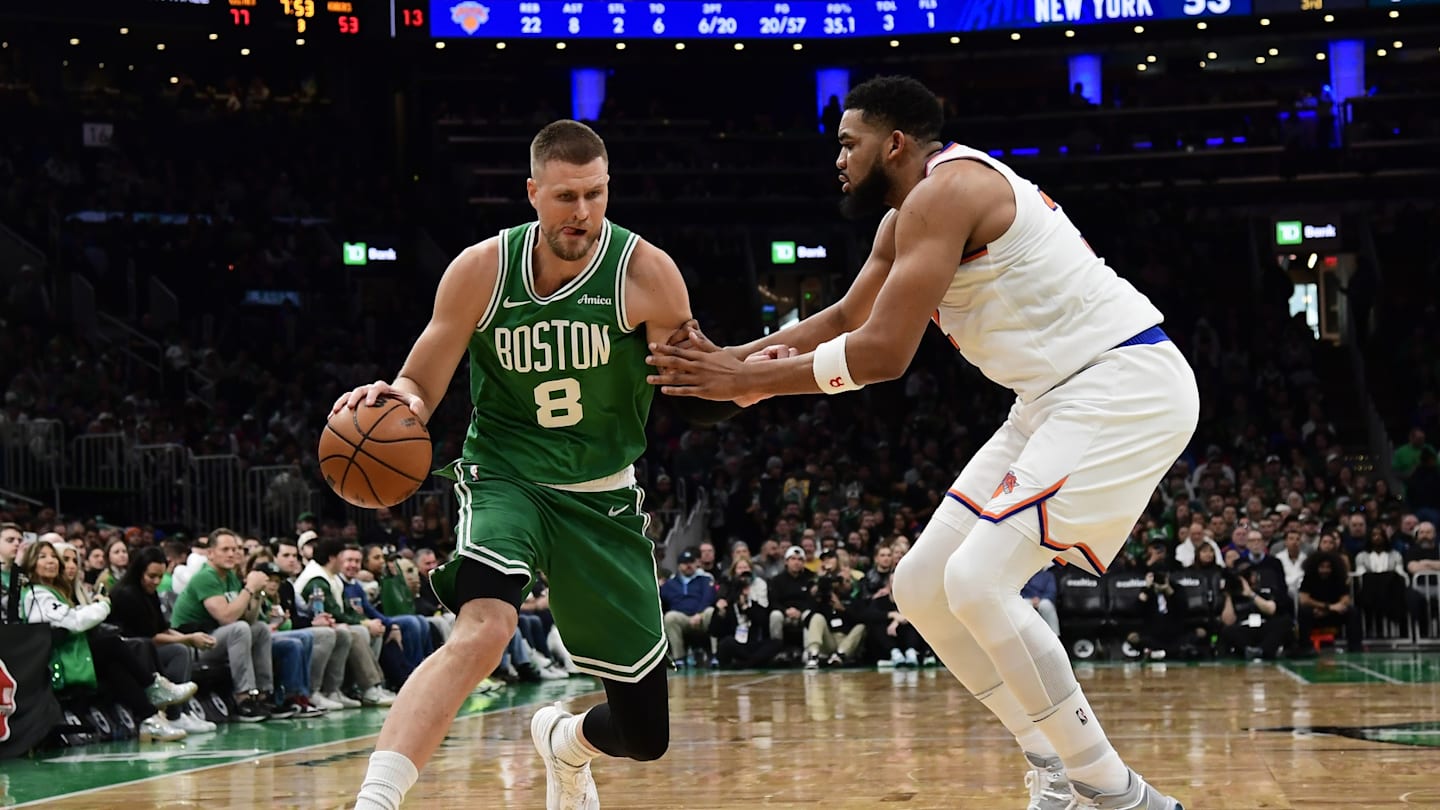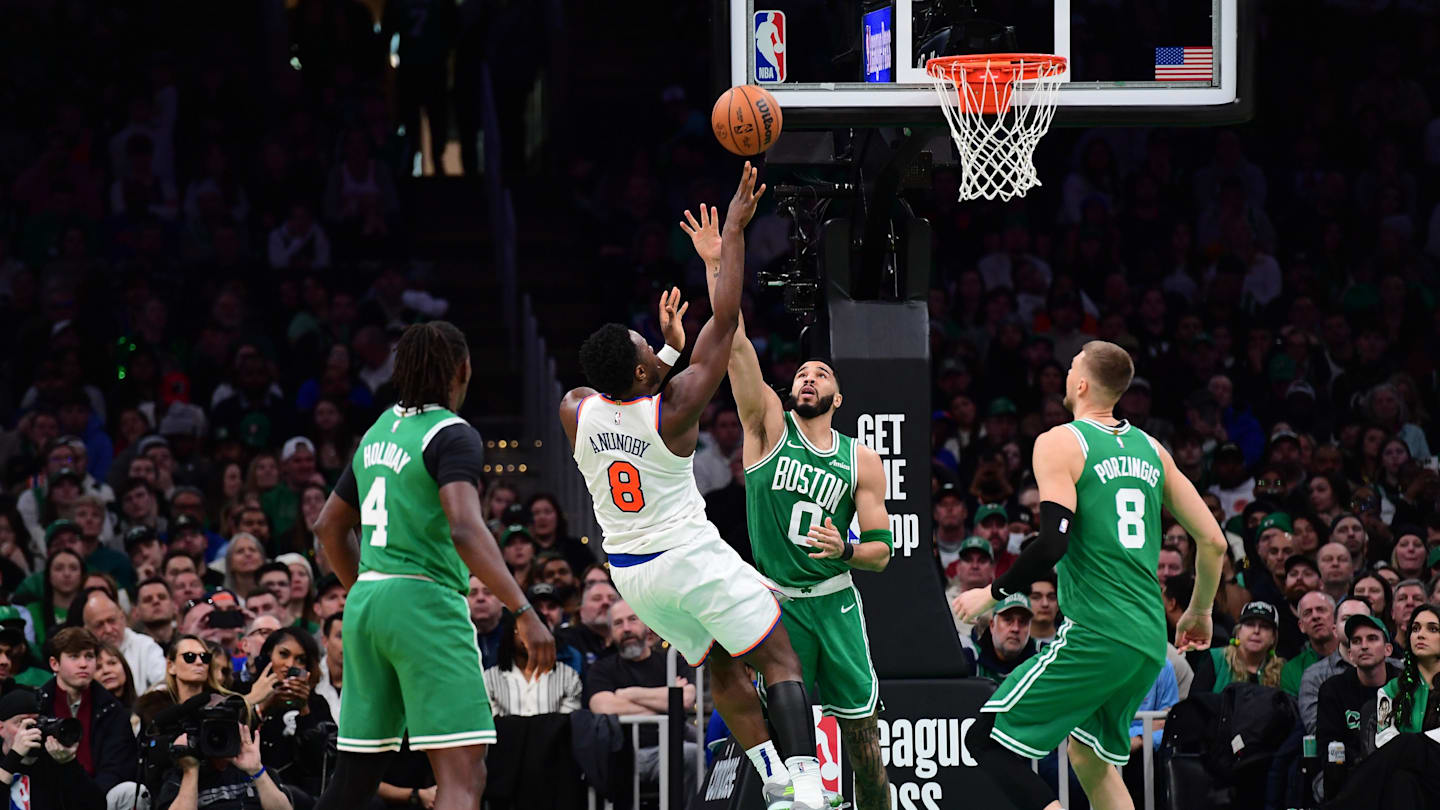Nuggets Journal: If NBA continues calling fewer fouls in new season? “We don’t flop on this team”

The scrimmage had already featured a handful of controversial calls and no-calls. DeAndre Jordan wasn’t happy with one out-of-bounds ruling. Nuggets assistant coach David Adelman could barely contain his laughter when a foul was called immediately as his team established a trap in the backcourt. Julian Strawther was appalled when Nikola Jokic seemingly got whacked on the arm but wasn’t rewarded with a free throw to accompany a layup.
This was all in the final five minutes of a close game between two halves of the Nuggets’ roster Monday on the main court at Ball Arena. Opening Day was around the corner. Competitive juices were flowing. It’s precisely what Michael Malone loves to see in a practice setting.
With a few seconds left in a one-possession game, even he got caught up in it. One of the referees took too long to hand off the ball to an inbounder. Exasperated by the delay, Malone belted out a bit of colorful language that echoed through the mostly empty arena.
“I think that referees have the hardest job in the world,” a sheepish Malone said moments later, unprompted, during his post-practice interview scrum. “I don’t care what kind of referee you are. I mean, the guys that get paid 15 bucks to come in and do this, it’s so not worth it. … I mean, gee whiz.”
During the NBA season, referees are as scrutinized as players, coaches and front offices. Some achieve notoriety for a particularly unrestrained whistle or a perceived bias. They’re under the microscope even more than usual as the 2024-25 season begins, due to an officiating trend that dates back to the All-Star break in February.
Fewer whistles.
According to an ESPN report in March, scoring around the league was believed to have dropped in connection with midseason memos from the league office, which outlined an increased officiating focus on offensive players veering into defenders to hunt fouls.
In head coaches’ meetings this September in Chicago, the NBA made it clear that the new emphasis wasn’t going away, according to Malone.
“I feel the general theme of that meeting was, ‘We’re hoping that’ll be more like what we saw post-All-Star break,’” he said. “Which is not to say that they’re not going to call fouls. But we’re going to let teams play a little bit more. You have coaches like (Warriors and Team USA coach) Steve Kerr who played and coached in the Olympics, and they always talk about how generally speaking, the FIBA game is much more physical than the NBA. So I think they’re trying to get to a point where — and the referees are doing the best job they can do — but kind of understanding, ‘OK, how do we create a game flow, let guys play?’ Offensively, players are always trying to game the system. So how do we not let the offensive players game the system anymore?”
Whether or not this benefits Denver probably depends on the player. Collectively, the Nuggets touted the fifth-ranked offense in the league last season (117.8 points per 100 possessions) despite ranking second-to-last in free throw attempts per game (19.9), a sign that they’re better equipped than most teams to thrive in an ecosystem that’s more lenient toward defenders. They don’t rely on drawing fouls to score.
“We’ll see. They say they’re gonna enforce physicality, and then people start whining, and then they start calling ticky-tacks again,” Nuggets forward Aaron Gordon said this week when asked about the league’s intent. “I hope that they let more physicality play, you know what I mean. We’re a physical team. We don’t flop on this team. We don’t even really embellish on this team. So the physicality plays in our favor for sure, so we’ll see how it goes.”
On the other hand, the eye test during the playoffs revealed an injury-hampered star point guard struggling to contend with Minnesota’s physicality. Jamal Murray had trouble getting the ball up the floor and creating space in the half-court against Anthony Edwards and Jaden McDaniels. If he isn’t 100% healthy, he might face problems against conservative referees. Same goes for Michael Porter Jr., who was made uncomfortable by Lu Dort and company during Denver’s season-opening loss to the Thunder.
“There’s not gonna be a throwback to 1988 New York Knicks. Or when my dad was in Detroit with the Bad Boys,” Malone said. “I think the league is allowing us to maybe play through some of those calls, which I think will be great. For many, many years, every rule that was imposed was always in favor of the offense, and that’s why the scoring has gone through the roof. The numbers have gone through the roof. So I think it’s good.”
As for the defensive end of the floor: The Nuggets allowed 22.2 free throw attempts per game last season, the 10th-most in the league, which also should bode well for them — especially now, with Christian Braun replacing Kentavious Caldwell-Pope as their leading perimeter defender. Braun is bigger than Caldwell-Pope, with an on-ball guarding style that relies more on physicality.
“That’s great for me,” Braun said. “I think being physical is a big part of how I play defense, and so that’ll be good for me. I think it’ll be good for a lot of people. You don’t want to get ticky-tack fouls. … Hopefully when I bump people — a lot of people have the same problem — but people don’t get to flail and throw their arms as much. I think that’ll be good for the game as a whole.”
When Malone was asked this week if the rules will benefit specific players more than others, the 10th-year Nuggets coach brought up Nikola Jokic. Denver has been in consistent contact with the league over the years about how the MVP center is officiated on post-ups, where defenders often try to get away with as much as they can. Gordon came to Jokic’s defense during the second round of the playoffs, telling reporters, “I think (the Timberwolves) are just draped all over Joker. I think they’re just hacking him. They’re hacking.”
Malone is generally unafraid of picking up technical fouls to make a point when he believes opposing bigs are getting away with too much grabbing.
If the Nuggets are going to be content with fewer foul calls in general, they might have to live with fewer going Jokic’s way, too.
“I’m sure after some games, I’m gonna be crying foul that, ‘Hey, Nikola was mugged out there tonight and we didn’t get any foul calls,’” Malone said Monday, laughing. “And then there are gonna be nights where we’re gonna say, ‘Hey, we thought the game was reffed the right way.’ … All you want as a player and coach is consistency. If it’s consistent from quarter to quarter, game to game, then there’s a lot less you can complain about.”
The coach knows himself well. By the end of the third quarter of the season opener, he was running down the sideline step for step with an official, screaming that Chet Holmgren was tugging Jokic around the waist. One game, one tech.
Want more Nuggets news? Sign up for the Nuggets Insider to get all our NBA analysis.
Originally Published:
Related
NBA: Mark Cuban says he would have asked for more…
Feb 13, 2025; Dallas, Texas, USA; Mark Cuban laughs during the second half of the game between the Dallas Mavericks and Miami Heat at American Airlines
NBA Scout Reveals Why Celtics Can Easily Beats Knicks in…
The Boston Celtics are one of the teams who are expected to be a contender at the end of the season. They are the defending NBA champions, so they feel like the
Nikola Jokić gives peak Nikola Jokić interview with Scott Van…
Nikola Jokić is still rewriting the record books — and treating it like just another day at the office. In a 149-141 overtime win over the Phoenix Suns
Knicks’ Struggles vs. NBA’s Elite Explained
The New York Knicks are one of the best teams in the NBA, but as of late, they have been defined more by their struggles than their triumphs.The Knicks are 0-7











